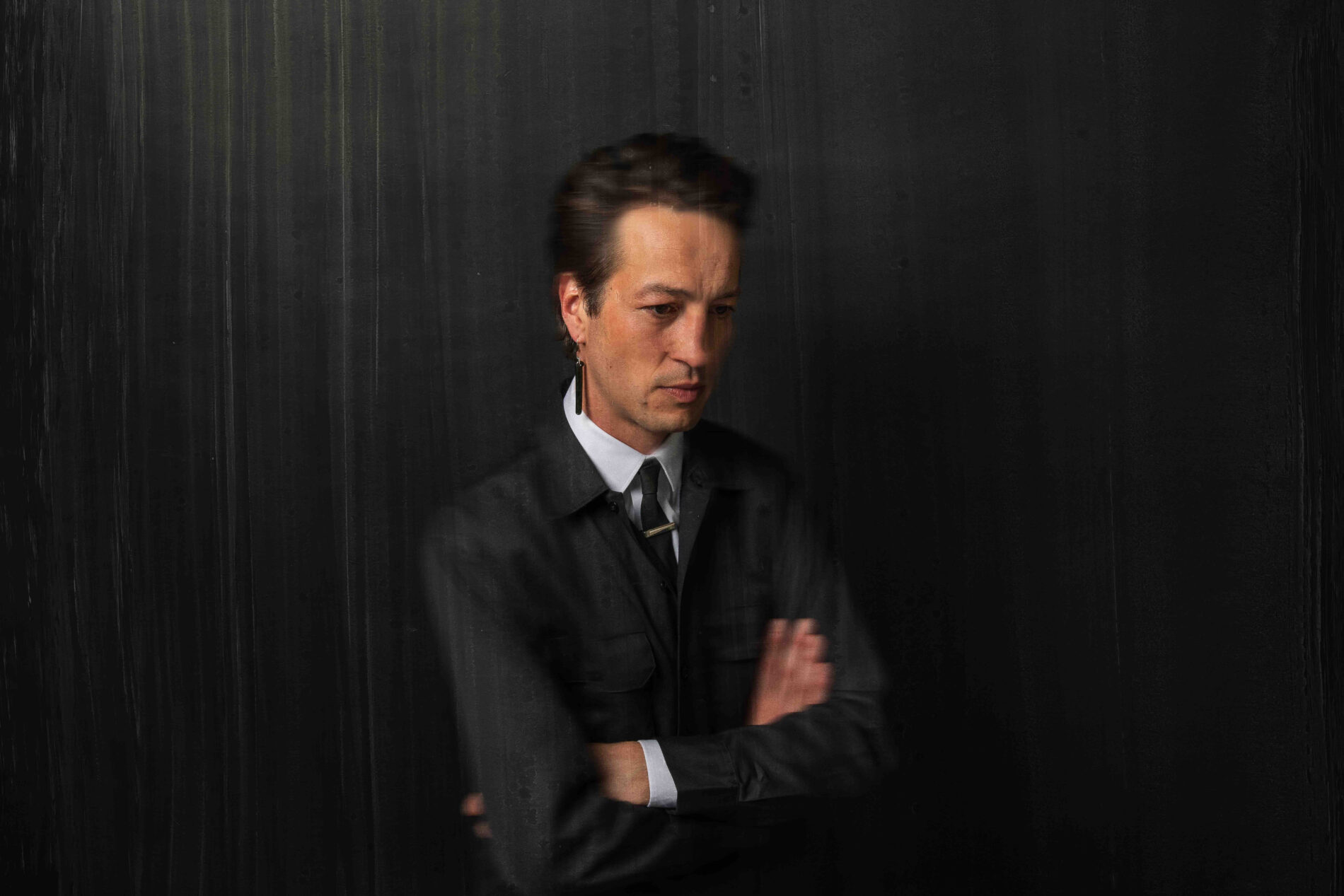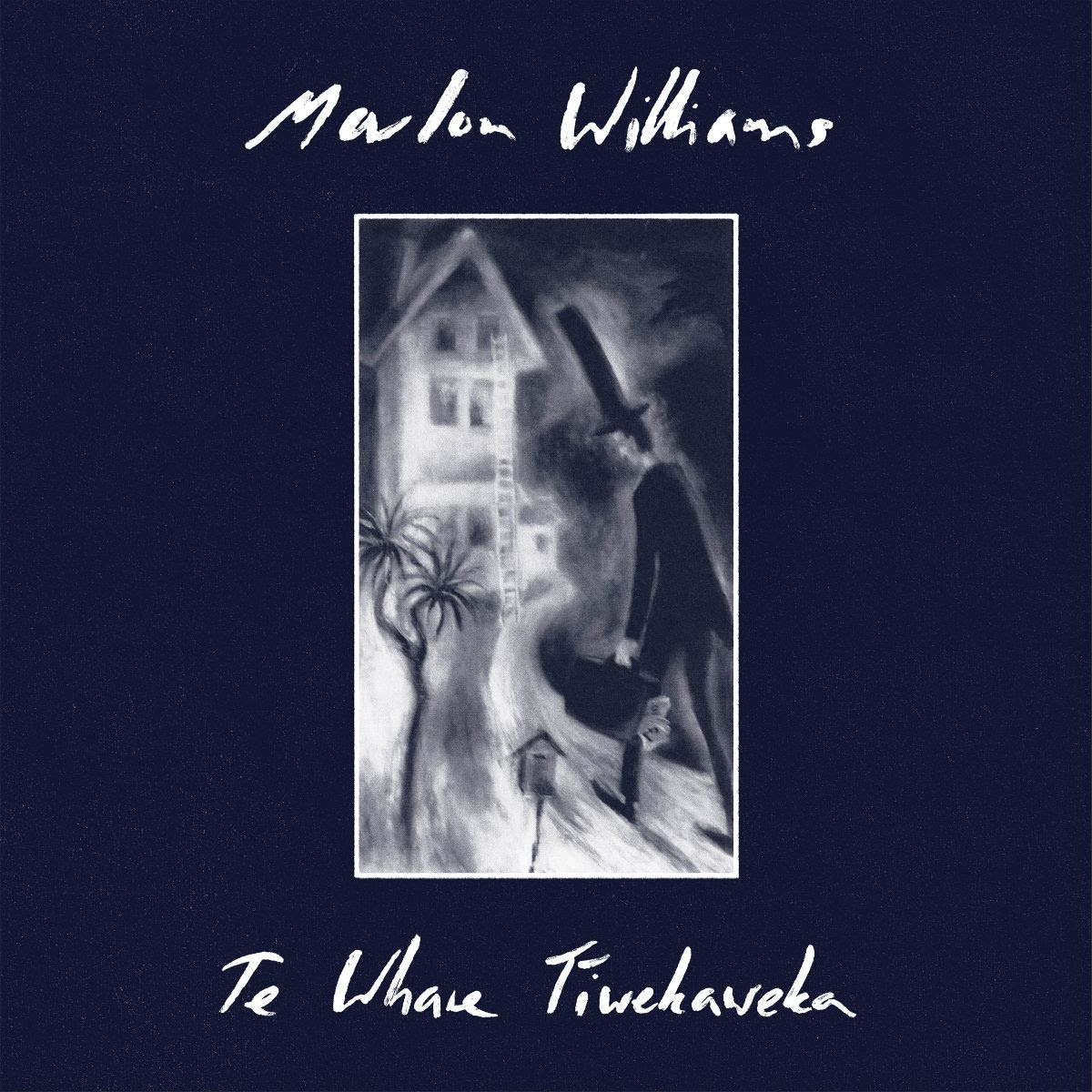Marlon Williams Announces Māori Language Album w/ “Aua Atu Rā” Video
Te Whare Tīwekaweka marks the New Zealand artist’s first ever LP written entirely in his ancestral language. Watch the debut video & preorder it now

It’s been a full decade since New Zealand-born songwriter, Marlon Williams, released his debut solo studio album. The self-titled LP received US distribution through Dead Oceans and caught our attention immediately. We caught Marlon live when he came through Seattle in January of 2016, and while we enjoyed what we’d heard on record, seeing him perform brought a whole new appreciation for the scope of his talent. With his choir background, it’s not surprising that the first thing to jump out at us was the sheer power of Marlon‘s tremendous vocal range. The immediate comparison I drew was to Roy Orbison, but his songwriting and delivery could easily be compared to Jeff Buckley with a dose of Chris Isaak and even some Screaming Jay Hawkings sprinkled in.
We caught Williams again when he performed at the Pickathon Music Festival that August. As we noted at the time, Marlon‘s songs “often play like miniature short stories or vignettes with characters that reveal themselves just enough to get a sense of their intentions or who they might be.” Adding that, “it’s when they’re performed live that they truly find their footing.” “His sound draws from a number of familiar elements, from country-western, folk, and roots to rockabilly, bluegrass, and even the murder ballad — in tone, if not subject.” We further mentioned that, “He has referred to his self-titled release as each song representing a different character, and it’s his ability to embody those characters and inhabit those worlds that allows him to venture into some otherwise “old timey” terrain without ever feeling contrived or derivative.” We were sold on him from both the recordings and his live show, but he’d progressed so much in the short window since we’d last seen him perform. It was impressive to witness him harnss control of his natural talent and learn to wield it with such precision in real time. Williams left the festival crowd mesmerized.
When Marlon first entered our radar, he had relocated to Melbourne, Australia and was touring the world, branching out and spreading awareness of his work. He was growing as an artist, evolving, and refining his craft. Now, on his upcoming LP, Te Whare Tīwekaweka, things come full circle for the singer-songwriter in more ways than one. 5 years in the making, the process of creating Williams‘s first Māori language album found him reconnecting to his family, friends, and hometown of Lyttelton on the eastern coast of the South Island of New Zealand. As the press release explains, “His journey developing his ancestral tongue unlocked both a newfound lyrical honesty and a grand sonic vision.” Recorded with the help of his long-time touring band, The Yarra Benders, the release features the He Waka Kōtuia singers and a collaboration with Lorde. Te Whare Tīwekaweka promises to infuse the familiar folk-country-bluegrass elements he’s known for with traditional Māori rhythms and poppier explorations.
Guiding the project is the Māori whakatauki (proverb) “Ko te reo Māori, he matapihi ki te ao Māori” which translates to, “The Māori language is a window to the Māori world.” Of the experience, Marlon states, “Through the process of constructing these songs, I’ve found a means of expressing my joys, sorrows and humour in a way that feels both distinctly new, yet also connects me to my tīpuna (ancestors) and my whenua (land, home).“

Our first glimpse into the new album is the track, “Aua Atu Rā,” co-written with Lyttelton-based rapper Kommi. Drawing inspiration from 60s Māori showbands, the lead single was crafted in response to the Māori proverb, “he waka eke noa,” which means “we’re all in this boat together.” The song centers around feelings of isolation and finds Marlon expressing such lyrics as, “I am alone / in this boat / on the ocean / There is not a trace of wind / No, none at all.”
Williams elaborates on the song and its creation process:
“‘Aua Atu Rā’ has existed as a song since May 2019. My stumbling around in flawed, simple Māori in my Lyttelton bedroom studio, spurned on by the thought of writing a depressively isolationist rebuttal to the above whakatauki, was the moment that kickstarted the record. It speaks to something universal, but especially pertinent to Te Ao Māori’s collectivist culture, that I’ve always found difficult to square. We ARE all in the same boat, and as the British literary pundit GK Chesterton added to the picture, ‘we owe each other a terrible loyalty,’ and yet are at once utterly alone.
“As a songwriter, I cherish simplicity, but as a speaker of Māori, I had a bucketload of whakamā (self-doubt) to push through before I could even approach my friend Kommi about helping me write songs in Māori. We took this song out on the road with us five years ago and it just felt so damn good to play. I’m proud of it for reasons deeper than I’ve felt as a songwriter before. This song acted as a guiding light for the rest of the album to follow.”
Watch the video for “Aua Atu Rā” below, followed by the Māori lyrics and their English translation.
| MĀORI LYRICS Ko au anake Ki te waka, Ki te moana Kāore kau he matangi Kāore he aha nei Titiro mai Titiro mai! Te ama! Ka tāuke atu nei Aua atu rā Ka mate au ki te moana mārie Kāore ōku tūmanako Kāore he aha nei Anana e Anana e! Te ama! Ka tāuke atu nei Aua atu rā E kore au e hoki anō ki a koe Kāore e hoki anō ki tō kainga ē E kore au e hoki anō ki a koe Kāore e hoki anō ki tō kainga ē Ko au anake Ki te waka, Ki te moana Kāore kau he matangi Kāore he aha nei Aroha mai Aroha mai! Te ama! Ka tāuke atu nei Aua atu rā |
ENGLISH TRANSLATION I am alone in this boat, on the ocean There is not a trace of wind No, none at all Look here Look here! The outrigger! It is breaking away Never mind I will perish on the calm ocean There is not a trace of hope No, none at all Behold Behold! The outrigger is breaking away Never mind I won’t be coming back to you Nevermore will I visit your home I won’t be coming back to you Nevermore will I visit your home I am alone in this boat, on the ocean There is not a trace of wind No, none at all Have mercy Have mercy! The outrigger! It is breaking away Never mind |
Regarding the new album, Williams states, “I hope that music may do the mahi (work) that conversation cannot, and that it may broaden and deepen our sense of interconnectedness.” As for his personal growth as an artist, Marlon explains that Te Whare Tīwekaweka has provided him “a bigger playground.”
Te Whare Tīwekaweka is now available for preorder.